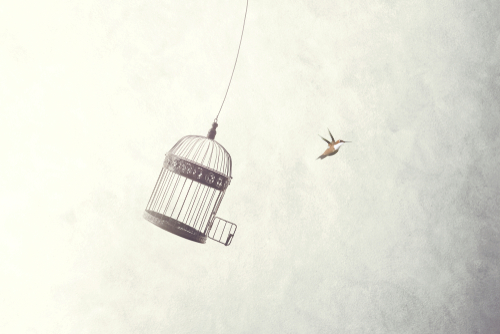At the heart of any attempt to learn or strive for continued growth is the concept of growth mindset. I’ve had zero coaching engagements where this doesn’t come up. It is core to our ability to be vulnerable, stumble, take risks, look silly and get better.
Through extensive research, Carol Dweck sets forth the concept of fixed vs. growth mindset in one of my most frequently recommended books, Mindset (2006). Today almost every thought leadership or self-help book references this research. All of us in the world of learning and development see and feel how fundamental it is.
Fixed and growth mindset address how we think about our abilities. Thinking of our talents as fixed traits makes it much harder to put ourselves in positions where those talents aren’t being proven. To someone with a fixed mindset, doing a task poorly or lacking knowledge about something feels like a threat. Those with a growth mindset believe our abilities can be developed through practice and learning. They are not threatened by challenges and mistakes, because they believe that through them they will develop their skills and improve.
A few years ago I took two eight-year old girls to play tennis. I was feeding them balls and they were missing all of them. One of the girls got really frustrated and after about ten misses, said “I don’t like this, I’m done.” After watching her storm off, the other girl turned back to me ready to receive more balls. She chatted and swung her racket and ran happily after dozens of missed balls. I thought to myself, “This girl is my hero. It’s not occurring to her that she might look silly or be failing.” I had never been able to stay that open and optimistic while doing something poorly. Eventually, of course, she started hitting the ball. She became my growth mindset role model. When I feel myself choosing to look impressive over learning more faster, I think of her swinging that racket and say to myself, “it didn’t even occur to her to feel silly.” Today this girl stops me instantly every time I use a word she doesn’t know to ask me what it means. I have a history of practicing the fixed mindset habit of looking up words I don’t know in private where my intelligence can’t be questioned. Asking people to clarify things I don’t understand or know about is one of the ways I practice a growth mindset. That’s the good news; we can practice and develop more of a growth mindset.
One way a fixed mindset shows up frequently for my clients is when they don’t feel good about how they are contributing to conversations at work. They have good ideas, but are frustrated that others often express them first. There can be multiple sources of this but one of them is their fear of looking stupid, which prevents them from tossing their ideas or responses onto the table. Because they want to prove their intelligence or their right to be at the table with every comment, few of their ideas seem good enough to say aloud. In accepting that an imperfect idea is not evidence of their own imperfection, they can begin to take more risks and find new ways of adding value.
Another way I often see fixed mindset is in people’s resistance to learning in areas of expertise or strength. It can be hard to accept new perspectives or information about things we are known to excel in. With a fixed mindset, new information can be perceived as a threat to our own expertise rather than an opportunity to deepen it.
Another indicator is unwillingness to ask for and receive feedback. The best of the best in all fields are feedback seekers. They welcome critical feedback as a way to hasten improvement. As you consider your own place on the spectrum of growth vs. fixed mindset ask yourself, “Do I invite or avoid feedback? Do I embrace or shy away from challenges? Am I threatened when someone else succeeds or do I celebrate and seek to learn from their accomplishments?” There are numerous opportunities to practice growth mindset behaviors in these questions.
It’s easy to see how beneficial a growth mindset is to innovation, creativity and resilience. A fixed mindset is fertile ground for our inner critic and the part of us that wants to play it safe. It makes us smaller. A growth mindset sets us up to explore, experiment and get up after a fall to brush off and try again. When we focus on effort, practice, and process over polished products and results we can nurture and develop growth mindset in ourselves and each other. After all, there is no arrival. We are works in progress, with something ever more possible always before us.

